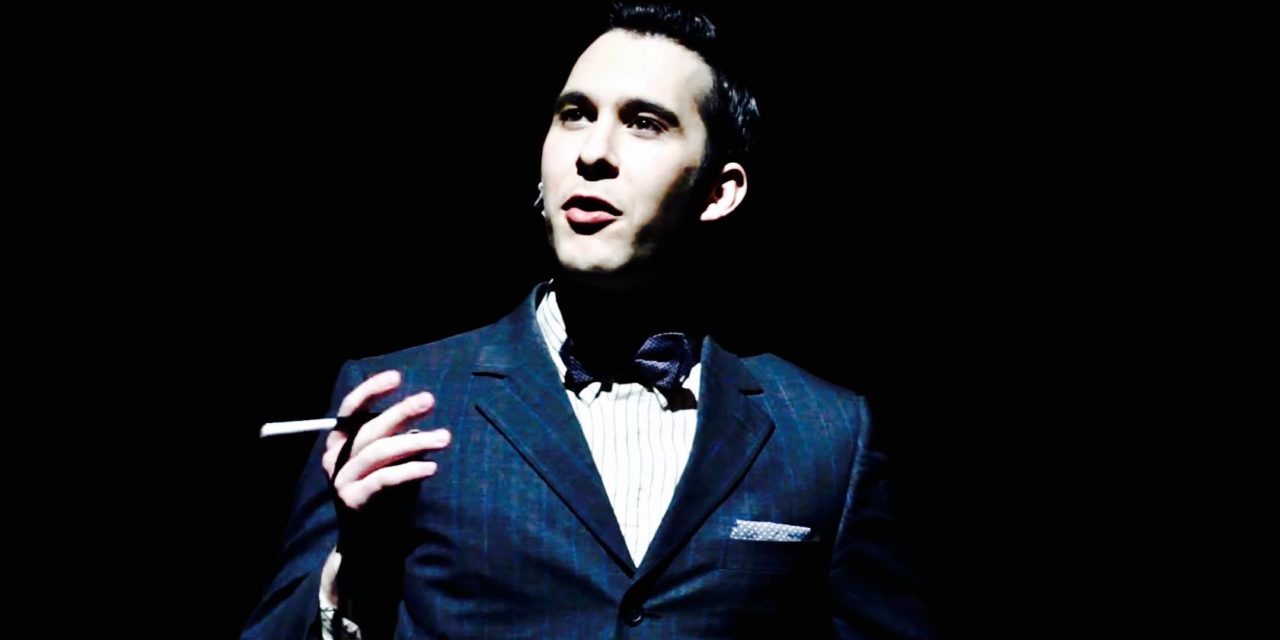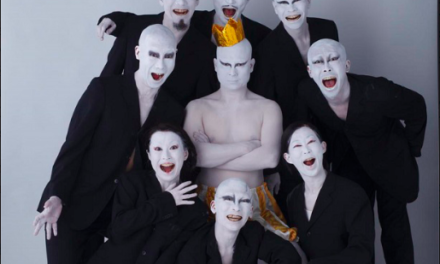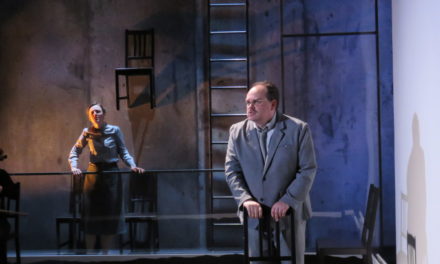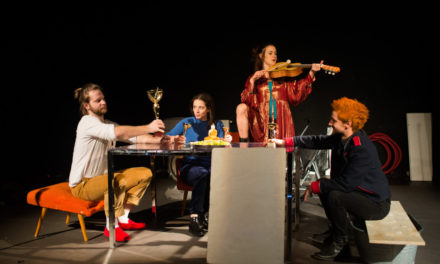Storms is known for his recurring role, Serge, on Steven Soderbergh & Gregory Jacobs’ Amazon Original Series, Red Oaks. He is also a member of the founding graduating class of actors at the T. Schreiber Studio’s first full-time conservatory. Some of his performance experience ranges from singing in Weill Hall at Carnegie Hall for Cole Porter’s 125th birthday celebration to being hand selected by renowned Chinese multi-media installation artist, Wang Jianwei, to perform in his North American solo exhibition debut, Time Temple, at The Guggenheim Museum. For the past two years, he has performed in the opening night of the Mabel Mercer Foundation’s annual Cabaret Convention at Rose Hall in Jazz At Lincoln Center. In addition, he has collaborated with well-known artists including Taylor Negron, Byron Janis, and Thomas Lauderdale.
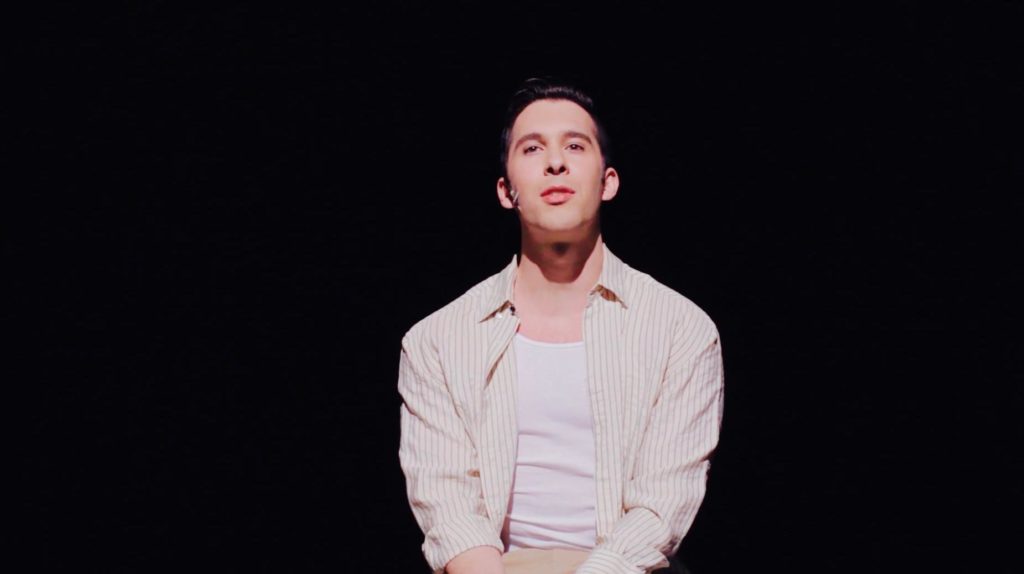
Photo Credit: David Pym
Vernon: Tell our readers what compelled and then convinced you to write Tennessee Rising.
Storms: About six years ago, my high school in Portland Oregon, The Northwest Academy, very unexpectedly flew me back West to give a speech at their annual scholarship fundraiser. While back in Portland, my middle school, Da Vinci, was also doing a fundraiser. It was a screening of Cat On A Hot Tin Roof at the beautiful landmark deco movie palace, The Hollywood Theatre. It was taking place on Elizabeth Taylor’s birthday because one of Taylor’s granddaughters was a parent at the school and wanted to tribute her grandmother, as well as help raise money for the amazing Da Vinci Arts Middle School. Connie Cheifitz, one of the co-founders of the school, asked me to sing Happy Birthday on stage before the screening. After singing to Elizabeth Taylor’s ghost, I had the thrilling experience of seeing Cat On A Hot Tin Roof on the big screen in the exact kind of old-fashioned movie palace where it was always meant to be seen. This lit some kind of flame in me. The next day I was at Powell’s bookstore and happened upon a copy of Tennessee Williams’ infamous Memoirs.
I devoured Memoirs but soon learned that much of what Tennessee wrote about himself in Memoirs was only sprinkled with truth and he distorted many parts of his own life story. I felt such a strong connection to the heart and love for humanity that did shine through his autobiography that I became inspired to shine some light on those early, largely unexplored years he glosses over. I wanted to tell the story of how a young struggling writer became this legend that we see him as today. Tennessee Rising covers six formative years of Williams’ life from age 27-34. I realize only now in retrospect that my experience of creating Tennessee Rising was also a six-year journey!
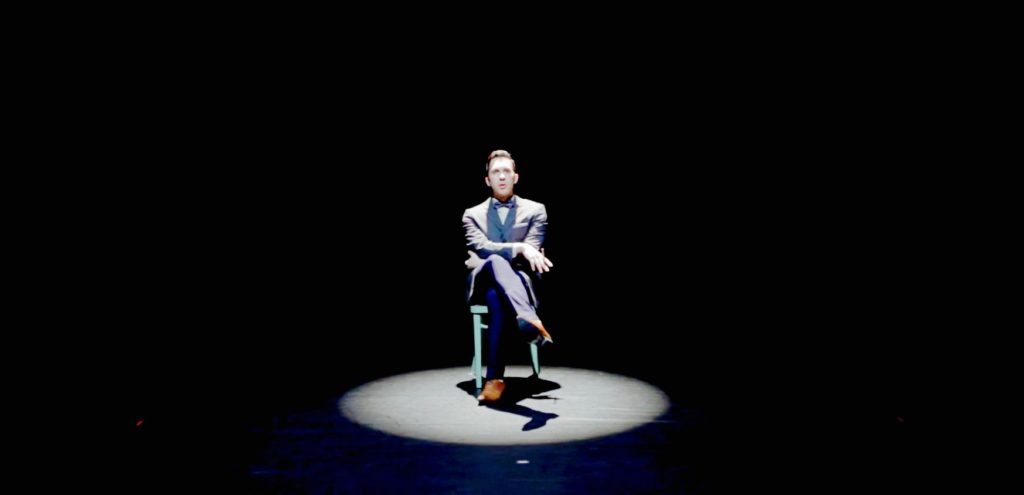
Photo Credit: David Pym
Vernon: Was there an event/person who encouraged you to create this piece?
Storms: Yes! I would never have attempted to write and perform Tennessee Rising had I not been given the opportunity to perform Doug Wright’s masterpiece, I Am My Own Wife. When I was a sophomore at The Northwest Academy, a director at my school, David Wagstaff, saw a production of I Am My Own Wife in Portland and after seeing it insisted he direct me in this one-man (35 character) play. After reading I Am My Own Wife, I knew I would be crazy not to take on this immense challenge. Wagstaff and I researched and rehearsed for two years and I performed I Am My Own Wife my senior year of high school to packed audiences. Having had the once in a lifetime opportunity to perform such a complex and gigantic one-man play and actually pull it off allowed me to see that I could and should take on the task of creating this dramatization of Williams’ early years. There were long periods of time throughout my creating Tennessee Rising that I was overwhelmed by the enormity of what I had set out to do but I was constantly encouraged along the way by those closest to me, especially by my late friend, (the beloved film/tv actor) Taylor Negron. In my moments of doubt, Taylor told me I had to press on and make this show a reality because somehow he knew I would do Young Tennessee justice. Taylor wanted to direct the play for me but unfortunately passed away before I completed it. His passing in 2015 was the impetus to finally complete the play and realize the vision that Taylor had encouraged me to manifest. I dedicated the play to Thomas Lanier Williams (Tennessee’s given name) and to Taylor Negron.
Vernon: What do you think Tennessee Rising offers to an audience who may not be so familiar with the work of Tennessee Williams?
Storms: My objective in creating Tennessee Rising was to strike a balance between appealing to longtime fans of Williams and his work, while also relating the narrative of Williams early years to audience members who may be less familiar with Tennessee Williams and his enormous contributions to American culture. That being said, I think the play can be equally enjoyed by the Tennessee Williams aficionado as well as the Tennessee Williams novice. My hope is that after seeing Tennessee Rising, the audience members who are less familiar with his work will be inspired to investigate his canon and fall down the Williams rabbit hole like I did.
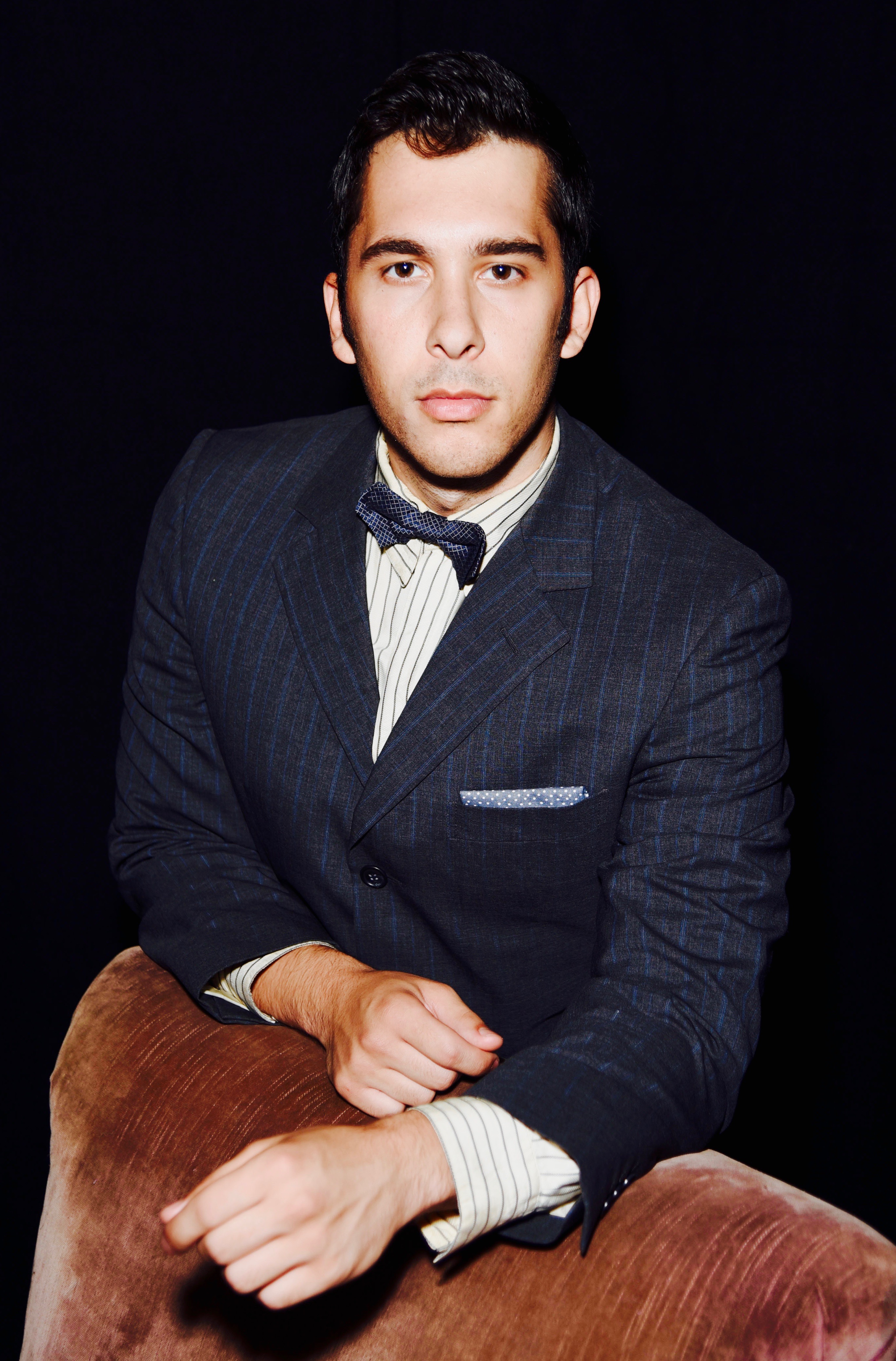
Photo by Derek Storm.
Vernon: From what sources did you do your research, and was there any one thing that particularly surprised you during that process?
Storms: I began with reading his major plays and then reading his letters, journals, essays, and interviews. One of the things that surprised me as Tennessee Rising was taking shape was that many of the inspirations for the characters of his major plays came about during the six-year period that my play covers. We get glimpses into how Big Daddy, Maggie The Cat, Stanley Kowalski, Amanda, and Laura all came about setting the stage for the plays that would turn a young unknown poet into the visionary playwright who redefined the American theatre. I am also very fascinated with the fact that Tennessee Williams was also a creation of his own brilliant mind. In order to qualify for a writing contest at The Group Theatre, young Thomas Williams submitted his work under the nom de plume Tennessee Williams so the Group could not look up his real birthday under his real name allowing him to create a persona that matched his new name.
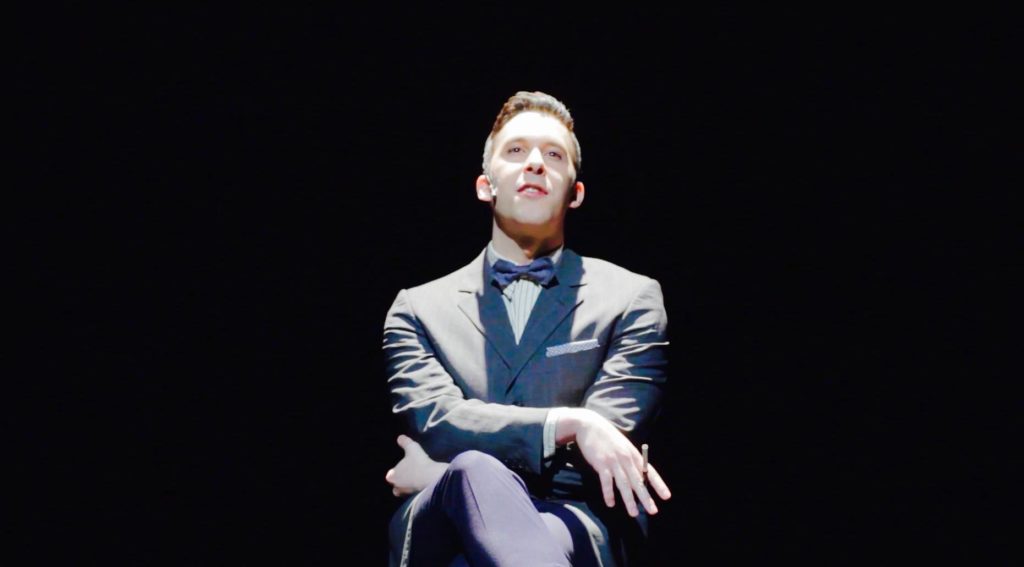
Photo Credit: David Pym
Vernon: Obviously based on your performance you have studied Tennessee Williams, his mannerisms, expression and deep thought, but what, if anything, do you do to prepare for your delivery of this piece?
Storms: The best thing I can do is to listen to audio recordings of Williams right before I go on stage. Luckily there are several very good recordings of Williams reading his poetry and selections from some of his plays as well as a few interviews that make up my “go to” listening catalog when preparing to go on.
Vernon: Where have you performed the play and what are your future plans for it?
Storms: The first time I performed Tennessee Rising was in The United Solo Festival. Next, I am doing a special one-night performance of the play at Bill T. Jones’ NY LIVE ARTS on Monday, April 9th at 7:30 pm, as well as performing the play in Portland, Oregon May 4th & 5th, and then taking the play to the St. Louis Tennessee Williams Festival May 11th-13th. I am working towards bringing Tennessee Rising to Off-Broadway as soon as possible!
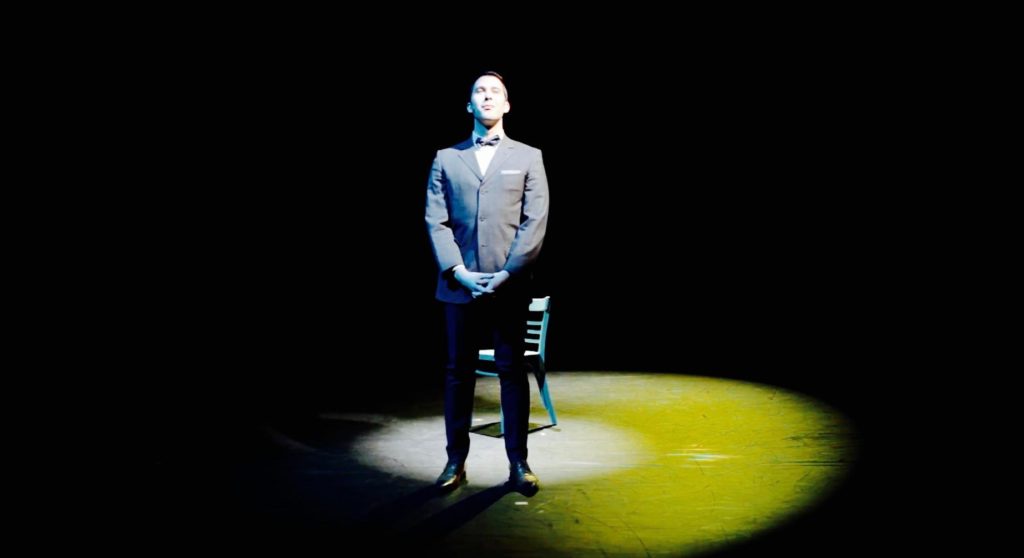
Photo Credit: David Pym
This post was written by the author in their personal capacity.The opinions expressed in this article are the author’s own and do not reflect the view of The Theatre Times, their staff or collaborators.
This post was written by David Vernon.
The views expressed here belong to the author and do not necessarily reflect our views and opinions.

